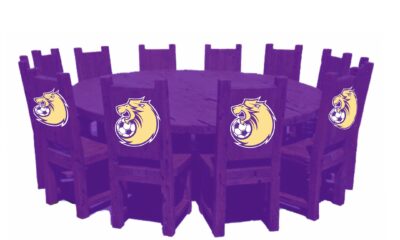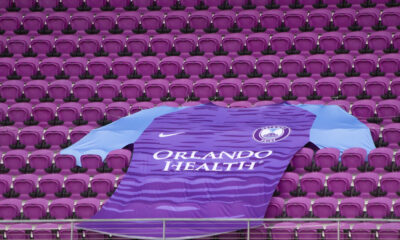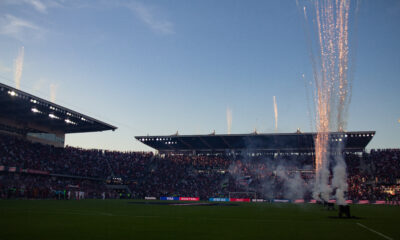Orlando City
TML Staff Roundtable: 2019 Orlando City Season Postmortem
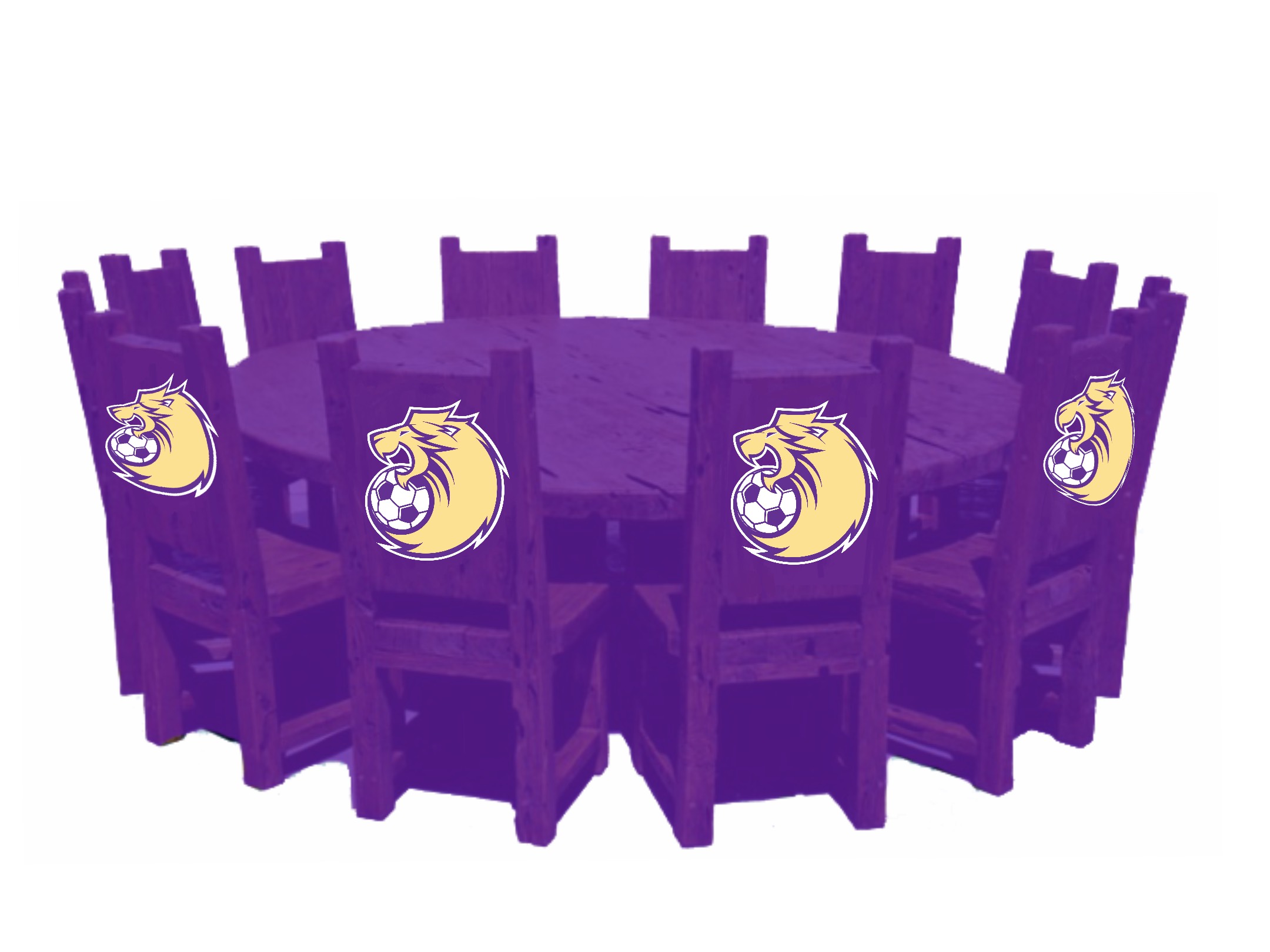
The 2019 season is over and it’s time to reflect on what happened to Orlando City in 2019 and look ahead to what 2020 might hold in store. I reached out to the full staff of The Mane Land to get some answers and those are below. Not everyone responded but those who did are represented below in full. Since I usually cherry pick the best answers, this will be longer than the usual roundtable piece, so be forewarned: you may need to put a pin in this and come back to finish it later.
Orlando City improved in several areas and made a deep U.S. Open Cup run but again missed the playoffs. Do you think the Lions underachieved, overachieved, or merely “achieved” in 2019, and why?
David Rohe: I think they underachieved slightly. I did have them just making the playoffs in my predictions, and if a few things had broken differently, they would have. The defense improved massively, but did give up too many late goals to drop points. The attack was never addressed entirely, and with Dom Dwyer either injured or having a bad case of the yips, the club also lost out on points on the offensive side of the ball. There were only five points’ difference between eighth and 11th place, and the final standing could have been much different if those factors hadn’t all hit this season.
Ben Miller: For me, the club merely achieved. I was one of the people that didn’t see this team making the playoffs at the beginning of the year and that’s exactly what happened. I think the semifinal run leaned towards overachieving but the implosion down the stretch when chasing a playoff spot sort of balanced that out for me. Overall the team did what I expected: showed some improvement while also showing that there’s still a long way to go.
Guilherme Torres: I agree that there was some progress, but I still think it’s an underachieving season. Nothing outside of making the playoffs at the very least should be considered as so in my opinion, especially with MLS increasing the number of qualified teams to seven in each conference. Any year in which Orlando fails to make it to the playoffs, it should be considered a failure.
Andrew Sharp: After setting out the target of playoffs at the start of the season, it’s impossible to say anything other than Orlando underachieved. Luiz Muzzi was clear that the organization believed the roster was good enough for at least seventh in the East and the team was there or thereabouts as late as mid-August but collapsed. Fewer than 10 wins, 22nd of 24 teams, taking four points from a possible 24 in a playoff race…the only achievement was a participation trophy.
Jenn Glasheen: I think the team underachieved, especially in relation to the talent on the field. While there were some improvements such as goals conceded, there was still no product in the end. In education, missing the mark would be considered underachieving. That is especially amplified when almost 60% of teams make the playoffs.
Scott Carnevale: I’d say the Lions “achieved.” I don’t think the playoffs were a realistic target this season. The skid at the end of the season was disappointing, but they were doing as expected all season. The overall play was much better compared to 2018, but there is still a lot of work to be done.
Sean Rollins: I think Orlando City underachieved in 2019 but met expectations. The expectation for this club is now to underachieve each season, which is what they did as they failed to make the playoffs for the fifth consecutive season.
Bearded Guy: Underachieved for sure. This squad is easily better than 11th in the East, better than a team with no back to back wins. I’m not saying playoff material, but I fully expected this roster to at least complete for the final spot.
My Take: Every team in MLS makes an annual goal of winning MLS Cup and making the playoffs, so with respect to my colleagues, to quantify this category solely on whether it made the postseason or not isn’t a realistic barometer. The Lions were historically bad in 2018 and not enough was done to the roster to make it a playoff team. Orlando was never jumping from second-worst team in MLS to top seven in the conference in one season. I’m measuring the club’s improvement in points and goals conceded, a decrease in lopsided losses, actually being in playoff contention until the end of match day 33, and just overall being a more difficult team to break down and beat and we got about what I expected aside from the winless streak at the end of the year. Had this team squeaked in, it would have overachieved. This roster still has holes, which I’ll discuss more below. The club merely achieved. I’d say it underachieved if it hadn’t been among the league’s most improved teams. It had a long way to go, sure, but the journey of a thousand miles has to start with a step or two and City took those initial steps.
What do you make of the firing of James O’Connor? Did he do enough to earn another year with a more fully realized roster? Why or why not?
Dave: It really depends on what happens now. On The Mane Land Pawedcast I said that if they were to move on from O’Connor it needed to be one hour after the last match. It wasn’t quite that fast, but it was the next day. I think he had the team trending in the right direction, and I would have liked for the front office to give him more time and the roster to compete, but it looks like the end of the season form doomed O’Connor. Add in that he wasn’t Luiz Muzzi’s hire, and it might have happened anyway.
Ben: I don’t think firing JOC was the answer and I wish it hadn’t been done. My biggest concern is that the culture he was beginning to implement will go out the window with whoever the new hire is. I also think that the team improved in a number of areas and was going in the right direction so I was looking forward to seeing what he would be able to do with another transfer window and preseason. The defensive improvement alone justified him getting another year, especially given the fact that the team was hamstrung offensively by the makeup of the roster. The one positive from the firing is that it was done as soon as possible after the season was over, but I don’t agree with the decision at all.
Guilherme: I’m not sure if I would fire him if I were in charge, but I can totally understand why Luiz Muzzi did it. James was already in the club when he came in and it’s possible that he wasn’t the coach of his dreams. The results most certainly didn’t put him in a good spot and if the front office really thinks he’s not the idea fit with their ideas, then they made the decision at the absolute right time as it gives them plenty of time to look for a replacement.
Andrew: Regardless of whether it was “his” roster or not, O’Connor chronically underperformed both with a 2018 roster that managed to put together the club’s longest ever win streak under the stewardship of Jason Kreis before O’Connor came in averaged 0.53 points per game with the same squad. After receiving several upgrades at key positions (Justin Meram to Nani, Scott Sutter to Ruan, Amro Tarek to Robin Jansson), he still leaves as only the second ever coach in MLS history not to achieve consecutive league wins and improved from the worst season in team history to the second worst. We saw that O’Connor can take a good USL roster and keep it good but that isn’t what Orlando City needs.
Jenn: I’m not sure that it was necessarily the best move the club could make, but the club ending in 11th again I can honestly say I see why they’ve made the decision.
Scott: It is not surprising knowing this club’s history, but extremely disappointing. He without a doubt should have been given another year as the team has gradually improved since he took over. With another transfer window under his belt I’m confident he would have taken the team to the playoffs in 2020, which should have been the goal all along. If Muzzi is calling the shots I will have faith in the decision, as he has yet to disappoint.
Sean: While James O’Connor struggled late in the year, I think he should’ve had another year. When you have three head coaches in five years, the blame has to be shifted from coaches and players to the front office. None of the three coaches have had the time to build anything before losing the position.
Beard: I think the front office should have given JOC one more season to right the ship. At some point, you have to question what the problem is, and I’m not sure that giving a coach in MLS 1.5 seasons is enough, especially when they are inheriting someone else’s roster, and a number of new front office staff.
My Take: I’m already on record as saying there are valid reasons both to fire O’Connor and to keep him. If the club was going to sack him, it at least did so at the right time, as opposed to the awful timing of the Adrian Heath and Jason Kreis firings. With Muzzi saying that James O’Connor will be a great coach, it certainly begs the question that if he believes that, why fire JOC? Seems to me if you commit to a young coach, you have to let them develop the same as a young player. I doubt Orlando will be cutting Benji Michel anytime soon, so why O’Connor? To me, the most damning reasons to fire him were the final eight games of 2019 and the lack of consecutive wins in a season and a half. I’m fine with this move if the next coach does well, so I’m reserving judgment until a later date on whether this is the right move or not. This is a long way of saying I’m not sure O’Connor did enough to warrant more time but I couldn’t tell you for sure that Bob Bradley or Bruce Arena could have gotten this team to the playoffs either.
If you were to jettison five players off the current roster, who would they be and why?
Dave: Sacha Kljestan, Lamine Sané, Cristian Higuita, Will Johnson, and Carlos Ascues. Kljestan and Johnson are both older players with big salaries, and I doubt they fit what Muzzi wants to accomplish. Sané is also a bit older, and while he has been a high point for the defense, I think the club can find another center back to be just as effective, but at a lower price. Higuita has shown flashes of becoming a better player, but he is often injured and if the club is to get anything for him, now is the time. Finally, I don’t think Ascues has done enough to justify his salary, and the club can do better. Altogether, dumping these players would potentially free up over $3.6 million in salary. That’s money Muzzi can spend elsewhere.
Ben: Danilo Acosta — simply put, I don’t think Acosta has a place on the team. He played eight MLS matches and the last time he featured was in July. For me that says enough about his place, or lack thereof on the roster. Robinho — this feels harsh but I wasn’t really on board with the Robinho signing in the first place, and while he did a decent enough job in the games he featured I think that the team would be better served going out and getting someone who brings more to the table. Kyle Smith — he improved as the year went on but I think the Lions need someone more capable of covering for Joao Moutinho if he’s injured as much next year as he was this year. He had some especially poor performances earlier in the year and I think the Lions need to continue improving across the back four. Josué Colmán — loaning out the young DP and using the DP tag elsewhere says about all it needs to. He didn’t see the field an overwhelming amount the last two seasons and I think that’s telling in and of itself. He didn’t seem to give the coaching staff much confidence in his ability to perform on the field, and I don’t see any reason to keep him around. Sacha Kljestan — at this point in his career Sacha reminds me of Cesc Fabregas during his final days at Chelsea: a luxury type player who can bring an overwhelming amount of creativity when on the field, but who also requires one or two elite defensive midfielders to lock everything down in his vicinity to make up for his defensive shortcomings. To me, that isn’t the type of player Orlando can afford to have right now, and it means that Sacha has to go.
Guilherme: Sacha Kljestan, Will Johnson, Cristian Higuita, Dillon Powers, and Kyle Smith. The first four are on pretty sizable contracts and haven’t delivered to expectations. If you want to rebuild, you have to open cap space and by getting rid of them Orlando would do so. With Smith, I just don’t think he’s up to MLS level.
Andrew: Dom Dwyer — he’d be a fine number two if the team was to acquire someone above him, but Designated Player spots and Allocation Money are both far too precious to be burnt on statistically the second most ineffective forward in MLS. Sacha Kljestan — Red Bulls knew exactly what they were doing with Kljestan the same way Sporting Kansas City knew what it was doing with Dwyer in selling a high-salary player just before their decline. Former assist king Kljestan was all but phased out of contention under O’Connor and I don’t see how his slow play fits back into the squad, especially with his contract expiring. Shane O’Neill — the most used defender by O’Connor in 2018, even the Irishman realized O’Neill was a liability in defense, leaving him out of numerous squads following a calamitous start to the 2019 season for him personally. Even Kamal Miller, who I don’t think had a particularly good rookie season, is above him on the depth chart. Greg Ranjitsingh — Orlando City showed it had three perfectly usable goalkeepers this year. None of them are match winners and certainly none of them are worth wasting an international roster slot on like with Ranjitsingh. A two-time USL Cup winner with O’Connor at Louisville City, I guess from a sentiment standpoint it was pretty loyal but with Mason Stajduhar now also finally getting his first professional minutes while on loan with Tulsa this season, four goalkeepers is excessive. Santiago Patiño — he seemed to be the product of drafting out of spite and principle and not filling a need. Tesho Akindele has made a fine number two, Michel is the young prospect Patiño was drafted highly to be and, if Orlando chases a top forward like I’d expect it to, Patiño is a jettison candidate purely because he’s surplus to requirement despite being cheap and fine depth in an emergency.
Jenn: Kljestan, Powers, Alex De John, Acosta, Patiño. These players are taking up roster spots and playing fewer and fewer minutes. If they’re the floor, I think it’s time to raise it.
Scott: Colmán — it was a good experiment bringing him on but he has not produced. It seems clear that he isn’t in the team’s plan as they sent him out on loan and it’s time to move on. Lindley — the team is already overloaded with midfielders and Lindley does not seem to be developing as the team would want. Ranjitsingh — I think the team needs a better starting quality ‘keeper and Brian Rowe should be moved to backup. I think Grinwis had a better season than Ranjitsingh, so Grinwis should remain on the roster. De John and O’Neill — they both have not been good enough this season and the team should bring in better quality depth in the back line this off-season.
Sean: Brian Rowe, Sacha Kljestan, Josué Colmán, Alex De John, and Oriol Rosell. Rowe’s inability to commit on plays has been a problem. Kljestan is a good player but has struggled and fallen out of favor. Colmán hasn’t shown what the club expected in making him a DP. De John is not ready for this level and I can’t see him contributing. Rosell is the most expensive defensive midfielder at base salary and doesn’t have the versatility of someone like Carlos Ascues.
Beard: Josué Colmán — I just do not see him becoming a good fit for this club. Sacha Kljestan — unless he is willing to take a massive pay cut. Santiago Patiño — Orlando will need to make room for forwards moving forward, and of those on the roster, this seems obvious. Dillon Powers — the club will need to thin the herd at defensive midfield. Dom Dwyer — I cannot keep waiting for Dom to snap out of whatever slump he is in.
My Take: There are several good ideas above, with regard to shedding salary and also replacing depth players with better options. Kljestan’s salary needs to come off the books. I won’t add Sané here because he was so damn good this year, but it would be great to get him to agree to a pay cut. I feel like the team has more or less already jettisoned Colmán, so I’ll cheat and leave him out here. Acosta and Powers are taking up roster slots without pushing for playing time, which only stagnates a team. O’Neill is too easily broken down and hasn’t worked out. One of the high priced central midfielders is my fifth choice here, and as much as I like all of them as players, I think the most expendable are Uri Rosell (salary), Higuita (most injury prone, highest salary and out of contract — bring him back cheaper?), Johnson (age and losing him during international windows), or Ascues (a bit inconsistent). I think my colleagues above are crazy for wanting to jettison Patiño, who is inexpensive, provides depth at a position of need, and still has plenty of upside.
Who are the five most indispensable players from this year’s team?
Dave: Nani, Mauricio Pereyra, Dom Dwyer, Robin Jansson, and Benji Michel. I think that Nani and Pereyra are obvious choices. Dom had a bad year, but given his salary and contract status Orlando is not getting rid of him, so we might as well give him the support he needs. Jansson will seemingly break his leg for this club, and I love him being on the pitch. Finally, Michel showed enough in his rookie season for me to be excited about his potential.
Ben: Nani — I don’t think there’s a ton that needs to be said here, but he led the team in goals and assists and was the creative hub that was central to a lot of what the Lions did well. Easy choice for this list. Mauricio Pereyra — he only made six appearances for the Lions but bagged three assists while also bringing a level of creativity and calm to the team that Orlando desperately needed. He looks to be a quality player and a good piece for the Lions to build around. Robin Jansson — no disrespect to Lamine Sané, but I think Jansson is the more crucial half of the Lions’ center back pairing. He was immense in game after game this season and, at 27 years old, looks likely to remain at his current level for some time. He also stayed fit for the majority of the season — a welcome departure from 2018 in particular when OCSC defenders were dropping left, right, and center. Ruan — when he’s on his game he adds a couple different gears to the team and is close to unplayable. He’s a cheat code for starting counter-attacks, has the speed to recover if he gets beaten, and has an eye for assists to boot. He definitely needs to be back. Will Johnson — every team needs a utility man and the Lions have a damn good one in Johnson. He runs his butt off, does the dirty work in the midfield, and for me is the glue that holds everything together when the team is playing well. If he leaves he’ll be sorely missed.
Guilherme: I’d say Ruan, Robin Jansson, Sebas Mendez, Nani, and Dom Dwyer. That’s a decent backbone for an MLS team and the Lions should build around these players, but still add some talent. I understand those who raised their eyebrows to Dwyer making the list, but I think he can still be a good player for this team if he gets his mind in the right place.
Andrew: Nani — simple, he’s the best player on the team. Cristian Higuita — several people (including myself) have documented the significant impact Higuita has had on this team when he’s both healthy and selected. The Lions have a wealth of options in midfield, which has further muddied the picture for the Colombian, who is worryingly out of contract at the end of the year. If he leaves, expect it to be one of the most haunting departures should he remain in MLS. Tesho Akindele — the Canadian forward was an absolute gem for Orlando, picking up the goal scoring slack left by Dwyer. Add to that he’s on a very salary cap friendly contract, he’s exactly the kind of value the lower teams scrapping for that final playoff spot look for to give them an advantage. Lamine Jansson — boom, two for one cheat code! On a serious note, the important thing to emphasize here is that Orlando City finally has a center back partnership in Sané and Jansson that it is able to rely on. The 2019 season saw the Lions’ best defensive record since joining MLS and it’s no coincidence that Sané and Jansson started 22 games together. Last season’s most frequent partnership was Sané and Tarek, who played together just six times! They dovetail together nicely and are forming a really strong tandem, it would be foolish to upset that. Ruan — I’m not as high on Ruan as other people, mainly because his offensive output is based more on quantity than it does quality. That being said, the speedy Brazilian has shown an upside Orlando hasn’t had at the right back position before. Better consistency in hitting his ceiling and he becomes an important piece to build around.
Jenn: Nani, Jansson, Ruan, Moutinho, and Pereyra.
Scott: Nani, Will Johnson, Ruan, Pereyra, Sané.
Sean: Nani, Tesho Akindele, Cristian Higuita, Robin Jansson, and Chris Mueller. Nani is the captain and leader of the team. Tesho is the team’s lone quality goal scorer up top. Higuita possesses a physical presence that lacks in the rest of the team. Jansson is the one constant in the back. Mueller shouldn’t start but provides an undeniable spark off the bench.
Beard: Nani, Lamine Sané, Robin Jansson, Sebas Mendez, and Benji Michel.
My Take: The TML staff was unanimous about Nani, although if there’s a younger upgrade available, I’d take it (spoiler: there probably isn’t, so I’ll keep it unanimous). I haven’t seen enough of Pereyra yet to know if he’s in my five. The center back pairing of Sané and Jansson makes my list of five, although it sure would be great if Lamine didn’t cost so much. He’ll be difficult to keep this off-season, I think. That leaves me with two choices left. Moutinho would be on the list if he could stay healthy but so far he just seems to be a much better, left-footed version of Rafael Ramos. So instead I’ll add Tesho Akindele and Benji Michel here because the former is a useful player at an affordable price and the latter has shown tremendous upside and his Homegrown Player status also makes him cap friendly (potentially, it depends on how he’s officially rostered). I think he has the potential to be a consistent double-digit goal scorer if he gets minutes (which ironically would probably make Akindele expendable).
Where should the club place emphasis on bolstering the roster for 2020?
Dave: I’ve said many times on The Mane Land Pawedcast that the team needs an MLS 3.0 striker like Carlos Vela or Josef Martinez. That is priority number one. After that, more attacking midfielders to complement Pereyra, and a top MLS level goalkeeper. In keeping with my answers above, the club also needs to replace Sané, and have good backup center backs.
Ben: Attacking midfield. For the love of god let Orlando sign some creative, attack-minded midfielders. The team has so many defensive midfielders that I can’t remember all of them and the lack of attacking verve showed both in the team’s paltry goal-scoring numbers, and tendency to sit back and protect leads rather than pressing forward and putting games away. Defensive midfielders tend to defend, and if the Lions don’t invest in some creative talent in the off-season then expect another rough season next year.
Guilherme: It’s all over the place to be honest. Orlando needs at least two good players in each area of the field and sometimes it’s tough to improve your team when you need significant upgrades in so many different spots. If they had to focus on one, though, I’d say midfield.
Andrew: Orlando City really struggled to contend with the injuries of both Ruan and João Moutinho, exposing the fact that most of the Lions’ offensive threat came from the wide positions. Kyle Smith was a fine stop gap if you’re the third-worst team in MLS, while Danilo Acosta disappeared off the face of the earth with Kamal Miller being preferred to the detriment of everyone, including Miller. Therefore, a versatile fullback to provide both competition and depth is a big need, as is an improvement in midfield to take some of the over-reliance on wide play away, although between Higuita, Sebas Méndez and Mauricio Pereyra, I’m hoping the new coach can cobble a coherent midfield together if the team feels it has more pressing needs. And so it should, as the biggest need won’t be a surprise to anyone: an elite, Designated Player worthy striker to finally put the ball in the goal.
Jenn: The Lions definitely need to trim defensive mids and needs to add attacking players who can create chances and score goals. The team also needs a reliable left back replacement if injuries are going to continue to plague Moutinho.
Scott: It is time for the team to stop trying to find the next hidden gem and start signing proven players. Orlando City needs to get a big name player that is still in their prime, or just past it. The Carlos Rivas and Josué Colmán stories are old now. They need to sign a player or two that can help the team right away and has experience. Ideally, it would be an attacking minded player — whether a forward or attacking midfielder — who can help set up goals.
Sean: The club needs a go-to target striker. They need a guy who can score 20 goals and be counted on in big games. They haven’t had that since Cyle Larin left.
Beard: Striker, attacking midfielder, and (obviously) coach.
My Take: I’d love for this club to add a forward in the Carlos Vela/Zlatan Ibrahimovic/Josef Martinez vein, but obviously those are few and far between. It’s almost like saying I want the team to sign Lionel Messi or Cristiano Ronaldo (I do, but…well, you know). I’d settle for someone a bit lesser known who is nearly as effective — think Heber, Kacper Przybylko, Gustavo Bou, etc. But a scorer is essential for two reasons: it takes the pressure off Dwyer, who was fantastic when playing with Cyle Larin a couple years back, and the club needs to stop blowing the chances it creates and put a death grip on these games. The defensive third must be addressed by adding better quality depth across the back line and a goalkeeper who steals points rather than being only serviceable or adequate. If Pereyra is going to be the No. 10 and Nani can be relied on less to score and more to create for Dwyer and a new DP striker, then maybe just a bit more attacking midfield/wing depth will suffice, otherwise, find me a Carles Gil or a Miguel Almiron, please.
There you have it. It’s a long piece but it’s broken up into bite-sized chunks for your consumption. Look for additional roundtables through the off-season and hopefully through 2020 as well.
Lion Links
Lion Links: 7/2/25
Big names leave Toronto FC, hot conditions in Club World Cup match, FIFPRO makes ACL recommendations, and more.
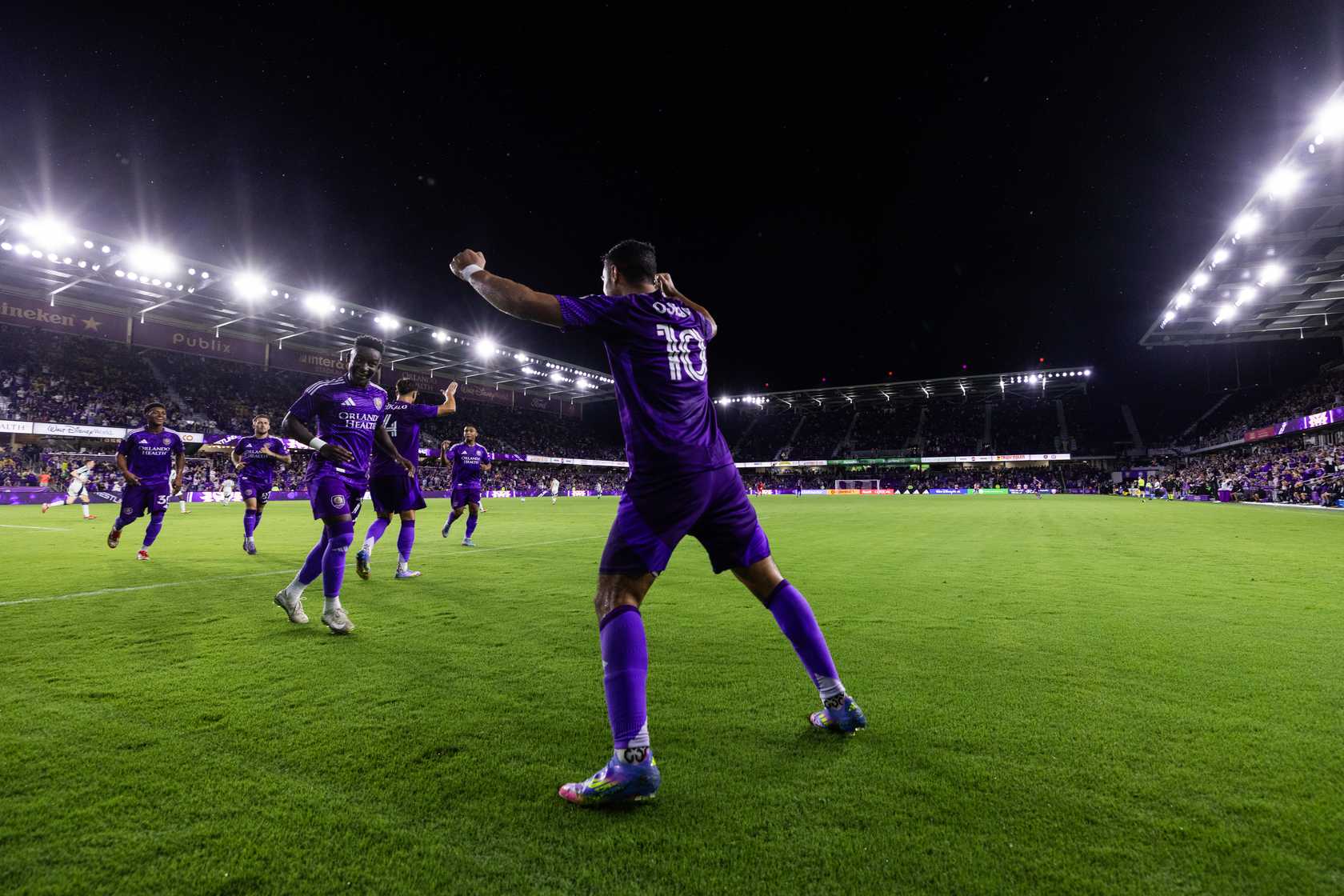
Happy Wednesday, everyone. It already feels like it’s been a long week, as I just got home from being out of town traveling up and down the East Coast for the last few days. The soccer world hasn’t stopped in my absence though, and as usual we have a lot to cover today. Let’s wish a happy birthday to OCB defender Tahir Reid-Brown, and jump into today’s links!
Italians Leave Toronto FC
It’s the end of an era at Toronto FC, as the club has parted ways with both Federico Bernardeschi, and Lorenzo Insigne. The Reds used both of their two buyouts of guaranteed contracts this season in order to get the transactions done, so the club was pretty keen to get them out the door. It’s hard to blame the Reds, as Insigne was the second-highest paid player in the league while Bernardeschi was the fifth highest. They didn’t have much to show for it though, as Bernardeschi had 26 goals and 22 assists in 99 games across all competitions, while Insigne had 19 goals and 17 assists in 76 matches. TFC never made the playoffs while the duo was on the team, and the decision to turn the page is an understandable one.
Difficult Conditions in Juventus vs. Real Madrid
The Club World Cup Round of 16 concluded on Tuesday, with Real Madrid knocking off Juventus 1-0 in afternoon match. Kylian Mbappe made his tournament debut for Madrid as a substitute, but it was Gonzalo Garcia’s 54th-minute goal that made the difference in the game. Juve boss Igor Tudor highlighted the difficult conditions in Miami, saying in his postgame press conference that 10 different players asked to come off the field during the game. Tudor didn’t outright blame the loss on the high heat and humidity during the 3 p.m. kickoff at Hard Rock Stadium, but noted that they were among several factors that made the game a very difficult one for his side.
FIFPRO Makes Recommendations to Curb ACL Tears
Amid a rash of ACL injuries to women’s soccer players, FIFPRO has made some recommendations to cut down on the rate at which they occur. Rather than focusing on things that can’t be controlled, the federation has suggested modifying the calendar, number of games, and the playing surfaces. FIFPRO member Alex Culvin is calling for minimum standards in the women’s game relating to pitch conditions and access to physiotherapists. More research around risk factors is also necessary, as is implementing preventative exercises at the youth levels of the game.
Transfer Rumor Roundup
Summer transfer business is in full swing, so let’s catch up on some of the hot rumors currently flying around. First up, Arsenal is said to be in the final stages of signing Viktor Gyokeres to a five-year deal. Staying in the Premier League, Manchester United is reportedly interested in signing midfielder Fabian Ruiz from Paris Saint-Germain. Juventus reportedly is close to signing Jonathan David after his contract with Lille expired. Finally, Bayern Munich is reportedly preparing a formal offer for Liverpool for Colombian winger Luis Diaz.
Free Kicks
- Orlando City is down a spot to no. 9 in the MLS.com power rankings.
- Landon Donovan says he has insider information that there are building tensions between Jesse Marsch and both players and officials within the Canadian Soccer Federation.
- The New York Cosmos will reportedly be back as a USL League One team that is set to begin play in the 2026 season.
- Haslam Sports Group has sold a 10% stake in the Columbus Crew.
- A drone not belonging to the United States Men’s National Team was spotted filming training on Tuesday.
That’s all I have for you this morning. Vamos Orlando!
Lion Links
Lion Links: 7/1/25
Pride signings, OCB draws, both U.S. national teams in action Wednesday, and more.
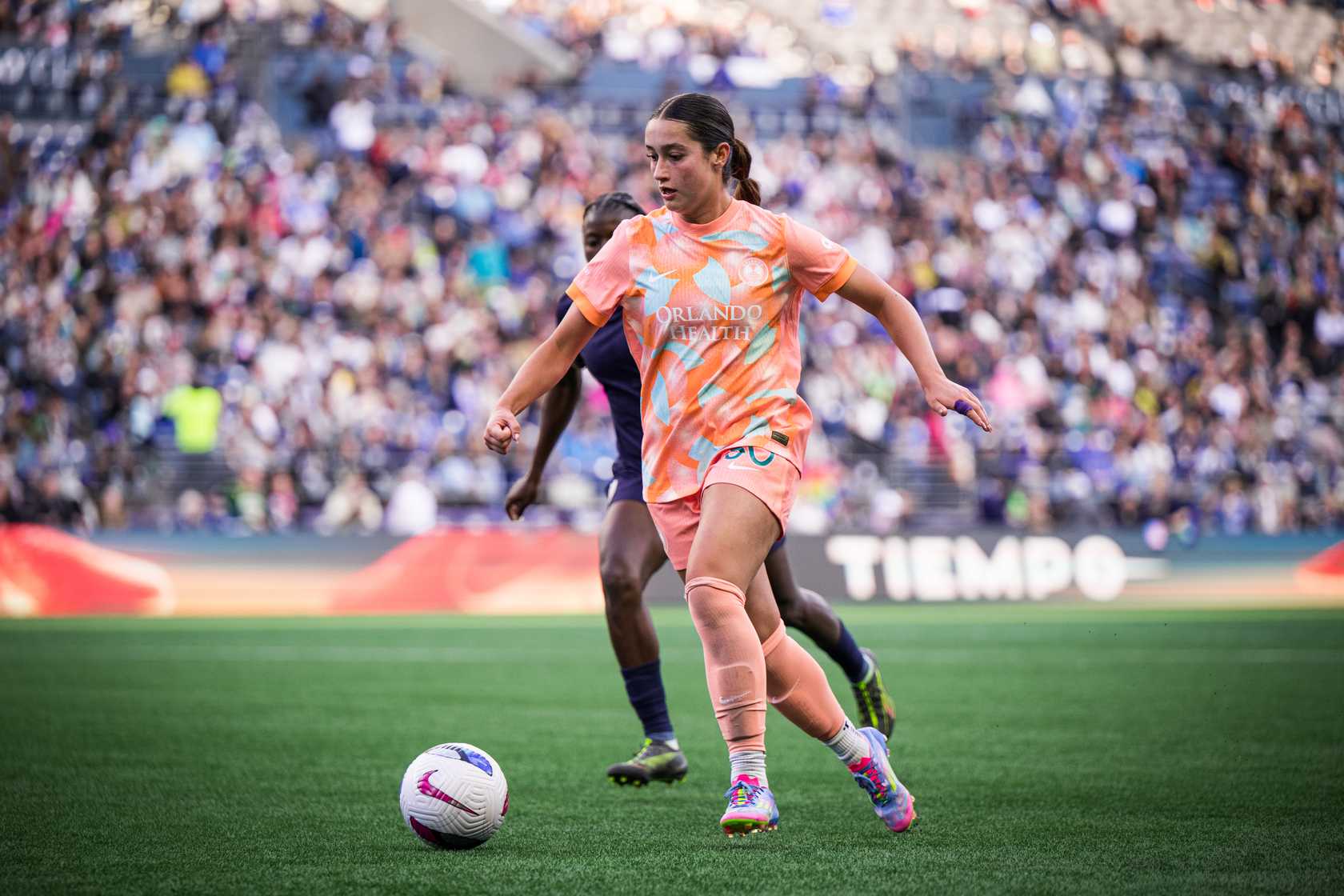
Welcome to July, Mane Landers. If you’re like me, you balanced the excitement and dread of the USMNT advancing on penalty kicks the other night. It was one thing watching Guatemala take out Canada but a whole other level of heart palpitating stress while watching the U.S. avoid a similar fate. There’s no time to relax with plenty of soccer to watch as we head towards Independence Day. Before we get to the links, please join us in wishing Orlando Pride/USWNT defender Emily Sams and OCB defender Clovis Archange each a happy birthday.
Orlando Pride Signings
The Orlando Pride announced a pair of transactions Monday. Midfielder Viviana Villacorta and the club have agreed to exercise the midfielder’s mutual option for the 2026 season. Villacorta was the No. 9 overall pick in the 2021 NWSL Draft. The Pride also signed midfielder Ally Lemos to a new contract through the 2027 season with a mutual option for 2028. The Pride selected Lemos with the No. 9 overall pick of the 2024 NWSL Draft. Orlando continues to lock down current players ahead of time. Now, we wait to see if any new players will be added.
OCB Earns a Point on the Road
Orlando City B played Philadelphia Union II to a 1-1 draw in a Monday afternoon match. Unfortunately, the Young Lions lost the end-of-regulation shootout 4-2 and did not get the additional point. Gustavo Caraballo assisted Jackson Platts on the early goal for OCB. Philadelphia equalized early in the second half. Carlos Mercado was the difference maker in the match, recording a career-high 12 saves.
USMNT’s Gold Cup Run Continues vs. Guatemala
The USMNT will face Guatemala Wednesday night in a 2025 Gold Cup semifinal match. The U.S. advanced past Costa Rica on penalties thanks to a stellar performance from goalkeeper Matt Freese. Guatemala stunned Canada with a second-half equalizer and advanced on penalty kicks. Guatemala has been the overachieving underdog of the competition so far. This will be the USMNT’s 17th Gold Cup semifinal appearance.
USWNT Hosts Canada
The USWNT will host Canada in a third friendly of this international window Wednesday at Washington, D.C.’s Audi Field. The U.S. is coming off two 4-0 victories over the Republic of Ireland. Canada should prove a tougher opponent for Emma Hayes’ squad. There is a possibility that the match will feature two Orlando Pride players — Emily Sams for the U.S. and Zara Chavoshi for Canada. Kerry Abello has returned to her club team after picking up a knock.
Free Kicks
- The Orlando Pride’s Anna Moorhouse is one of many NWSL players that may feature in the 2025 UEFA Women’s Euro competition.
- Kristie Mewis is leaving West Ham United after only four appearances in 18 months. He time was limited due to injuries and then pregnancy.
- Global players’ union FIFPRO has concerns about the potential intense heat at the FIFA Club World Cup next year.
- Botafogo fired coach Renato Paiva after Brazilian rival Pal defeated Botafogo in the Club World Cup. Paiva was only in the job for four months.
- USMNT midfielder Malik Tillman may be headed to Bayer Leverkusen in the Bundesliga.
- Former Orlando Pride midfielder Erika Tymrak has retired from professional soccer.
That will do it for today. Check back as we get you ready for Orlando City’s match against Charlotte FC this weekend. Vamos Orlando!
Orlando City
Orlando City Striker Ramiro Enrique Hindered By Inconsistency
Ramiro Enrique’s inconsistent play raises the question if he can be the go-to striker Orlando City desperately needs.
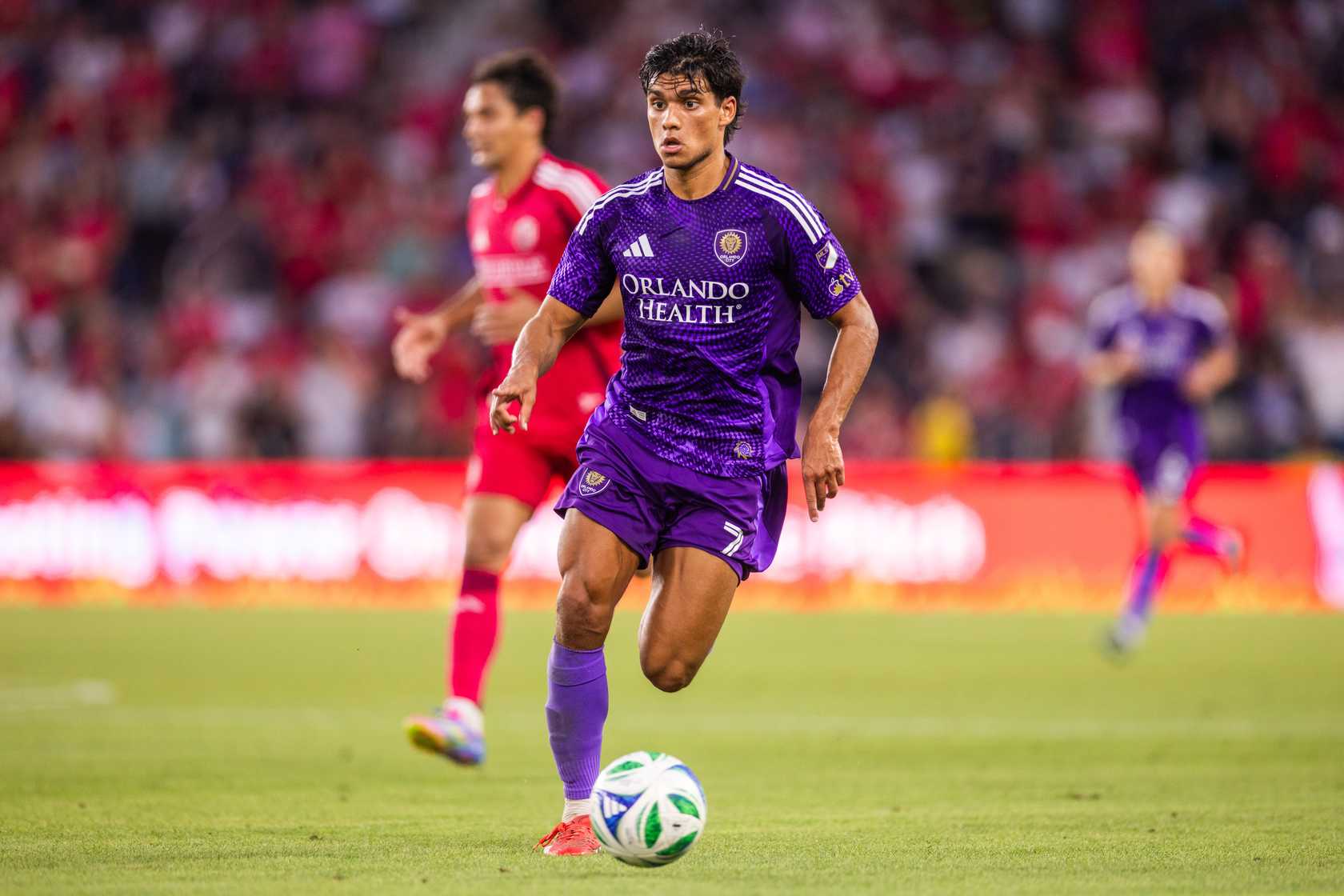
Orlando City’s strike force has been inconsistent this season, to say the least. At times, the players up top have looked like they can score at will, but at other times, they struggle on chances they should finish. Nobody displays that inconsistency better than Ramiro Enrique.
Joining the Lions in 2023, Enrique has primarily served in a backup role for Ercan Kara, Duncan McGuire, and Luis Muriel. The young Argentine has had the occasional start, but ultimately ends up back on the bench, entering later in games.
Orlando City acquired Muriel prior to the 2024 season when it appeared McGuire was on his way to Blackburn Rovers. However, the English side’s struggle with simple paperwork resulted in the Omaha, NE, native returning to Orlando. It left Oscar Pareja with some decisions to make.
The Lions often employ a 4-4-2 formation with a single striker and Muriel playing underneath. As a result, the three forwards all saw plenty of action in 2024. Enrique started 12 games, Muriel 14, and McGuire was listed 18 times in the starting lineup. However, Enrique’s strong form near the end of the season saw him start 11 of the final 12 regular-season games and all five playoff contests.
Aiding Enrique’s playing time were injuries to McGuire. The 6-foot-1 striker suffered a shoulder injury on Nov. 9 in an MLS Cup playoff game against Charlotte FC, guaranteeing a starting spot for Enrique. As McGuire continued to work towards his return at the start of the year, Enrique took his place.
At times, it looks like Enrique is more than a substitute for Muriel or McGuire and can be the go-to scorer the Lions have struggled to find since Daryl Dike. But his inconsistency eventually returns, making it hard for Pareja to depend on the young attacker. That issue has been most noticeable during the two most recent games.
Putting shots on frame has been a struggle for the Lions this year, but it wasn’t for Enrique Wednesday night in St. Louis. After the Lions lost back-to-back games against Atlanta United and the Chicago Fire, Enrique was inserted into the starting lineup for Muriel. He took advantage of his opportunity in St. Louis, placing three of his five shots on target. He scored a first-half brace, giving his team a commanding three-goal lead after just 22 minutes.
In the seventh minute, Martin Ojeda sent a strong ball across the box that Enrique ran onto with perfect timing. He didn’t try to do too much, tapping the ball in on the slide. After Marco Pasalic made it 2-0, a bad turnover in the 22nd minute gave the striker a second chance. He was in on goal and made no mistake, slamming the ball past Roman Burki to make it 3-0.
The performance had many wondering if the team had finally found the striker it had been looking for since McGuire went down. But it wasn’t to be as Enrique reverted to his inconsistency with a poor performance in Saturday night’s 2-1 loss to FC Cincinnati.
The striker was unable to put any of his three shots on target, but that’s only part of the story. It’s how he failed to score that was the bigger problem.
In the 51st minute, Pasalic forced Brian Anunga into a turnover just outside the Cincinnati box. Enrique made a run toward the near post and Pasalic found him. The striker should’ve had no problem putting the shot on target, but he hit the ball with his left foot as his right came through, knocking the ball out of play for a goal kick.
He had a chance to redeem himself in second-half stoppage time with the Lions looking for an equalizer. Rafael Santos played a beautiful ball to the near post that only required a slight touch to beat Roman Celentano. However, the striker sent his header well wide, squandering a golden opportunity to claim a point.
These two games show the inconsistency that has plagued Enrique throughout his Orlando City career. He’ll look to be in excellent form and ready to claim the starting striker role, only to follow it up with a poor performance. It’s something that has held the Argentine back since his arrival and continues to do so this year.
Even more troublesome, it leaves Orlando City without a dependable striker. McGuire can’t seem to get over his shoulder problems, and he is currently on the sidelines again while he recovers from surgery on the opposite shoulder to the one he hurt in last year’s playoffs. Muriel and Ojeda often partner each other up top, but both are more comfortable in midfield positions.
Injuries and players in uncomfortable positions provide Enrique with the perfect situation. Consistent scoring would assure Pareja that he can depend on the 24-year-old to produce the goals his team has been searching for. But the striker can’t seem to put it together over the span of multiple games.
He’ll have plenty of opportunities in the near future to win the position he undoubtedly craves. McGuire’s absence due to injury and Muriel’s preference to play underneath means Enrique will likely get more playing time. However, he needs to show more consistency if he wants to hold onto the starting spot long-term.
-
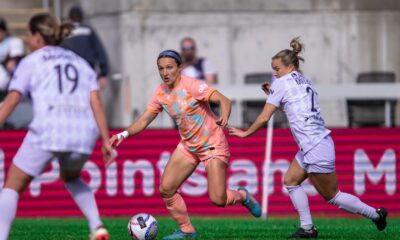
 Orlando Pride2 weeks ago
Orlando Pride2 weeks agoOrlando Pride vs. Racing Louisville FC: Preview, How to Watch, TV Info, Live Stream, Lineups, Match Thread, and More
-
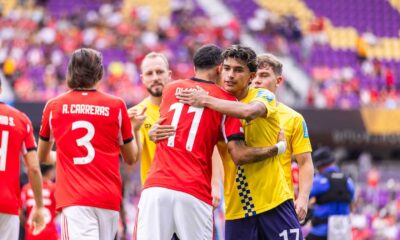
 Local Soccer Events2 weeks ago
Local Soccer Events2 weeks agoSL Benfica vs. Auckland City FC: Final Score 6-0 as Benfica Wears Down New Zealanders
-
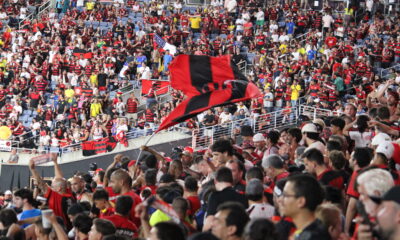
 Local Soccer Events1 week ago
Local Soccer Events1 week agoLAFC vs. Flamengo, 2025 FIFA Club World Cup: Final Score 1-1 as Teams Exchange Late Goals
-
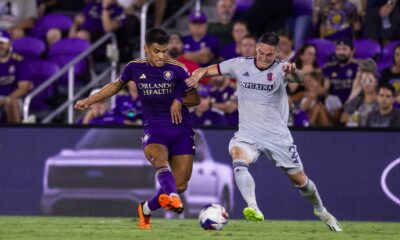
 Orlando City1 week ago
Orlando City1 week agoOrlando City vs. St. Louis City: Preview, How to Watch, TV Info, Live Stream, Lineups, Match Thread, and More
-
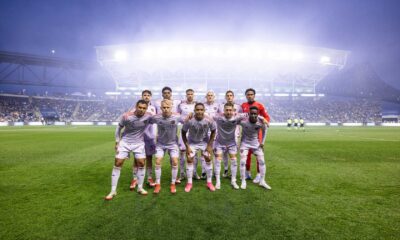
 Opinion2 weeks ago
Opinion2 weeks agoOrlando City Has Been Better than Expected Halfway Through the Season
-
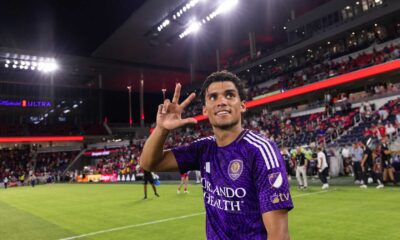
 Orlando City7 days ago
Orlando City7 days agoOrlando City vs. St. Louis City: Five Takeaways
-
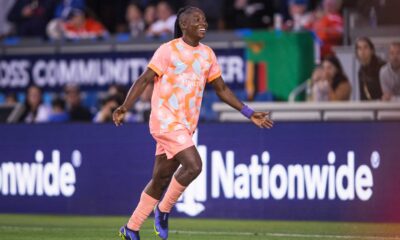
 Podcasts2 weeks ago
Podcasts2 weeks agoSkoPurp Soccer Episode 91: Bay FC Rewind, Racing Louisville Preview, and More
-
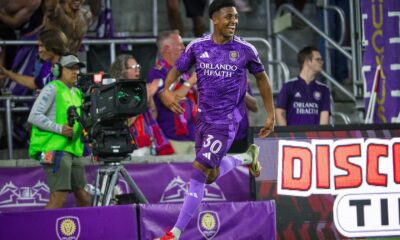
 Orlando City1 week ago
Orlando City1 week agoOrlando City Fullback Alex Freeman Selected to Participate in 2025 MLS All-Star Game


